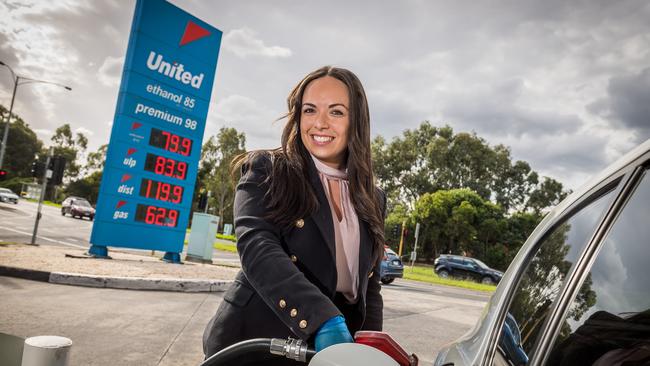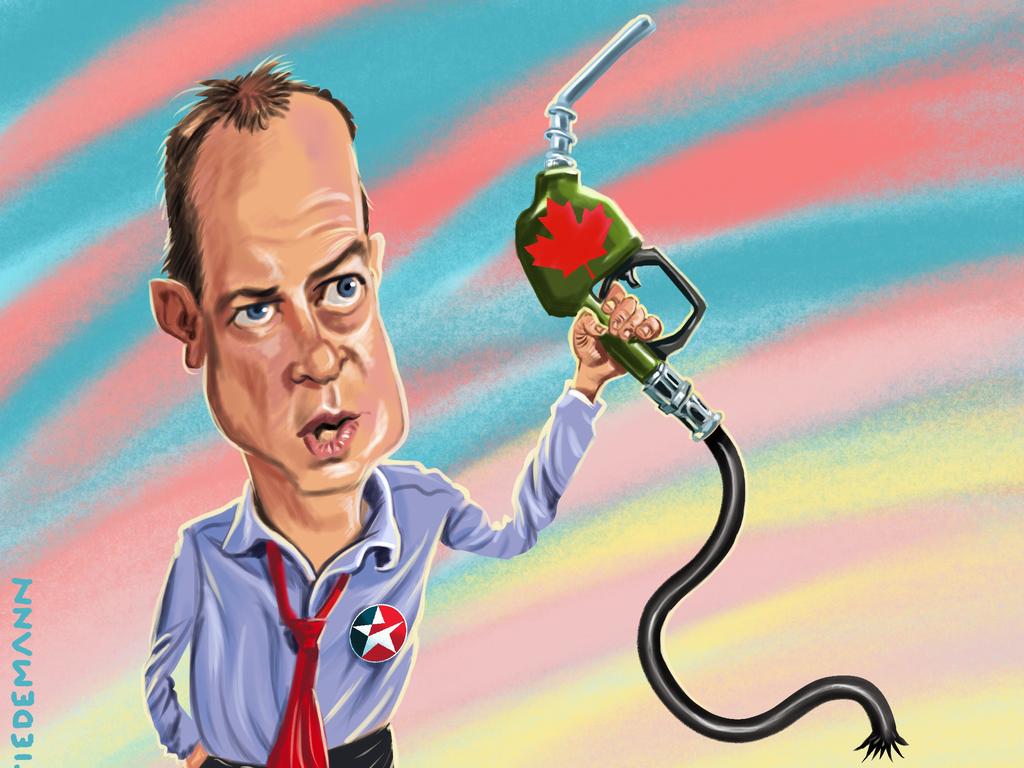Negative US oil prices don’t mean cheap petrol for Australia
US producers might be about to give oil away, but your local servo won’t be following suit.

Despite overnight falls that saw US oil prices turn negative for the first time, Australian motorists will not be enjoying any fuel bargains.
Amid an oil glut caused by a coronavirus-inspired plunge in demand, US oil futures sank below zero. With so much unwanted oil, and limited space to store it, traders were effectively being forced to pay others to take the commodity.
The price of a barrel of West Texas Intermediate crude to be delivered in May ended at negative $US37.63.
The negative prices were a reaction to the storage shortage ahead of a Tuesday deadline for the close of futures contracts. Once that deadline passes, US prices should turn positive again.
However prices still remain low, with the June contract for West Texas Intermediate futures closing down 18 per cent to $US20.43 a barrel and Brent, the global benchmark, down 8.9 per cent to $US25.57.
More relevant to Australia on Tuesday were Singapore prices, while June WTI contract prices rose in Asia trade to as much as $US22.29 a barrel. Brent crude rose to $US26.22 after falling 8.9 per cent on Monday.
NRMA spokesman Peter Khoury said he was closely watching international prices and how quickly sellers in Australia passed on the price cuts.
“We’ve been pretty active over the last few weeks because we wanted to make sure the falls as a result of the coronavirus and the price war were passed on,” he said.
“Over the last few weeks we would certainly not call it getting better. Now we want to see what happens today and what sort of effect it has on the Australian market.
Fueltrac general manager Geoff Trotter said the “historic” negative price was a signal something was seriously wrong, but current prices in the Asia Pacific were trading more around the $20 a barrel mark.
“Oil prices, in general, don’t directly impact Australia; it’s a question of what happens with the refined oil prices in Singapore,” he said.
“There’s no real upside for the consumers, they can’t get any benefit, we’ve got pump prices in some parts of Australia down to 80 cents a litre. That’s great, but who can take advantage of it?”
An Australian Competition and Consumer Commission spokesman said: “We are looking at the market very closely, to determine if further sustained reductions in international prices are being passed onto consumers, and we will be publicly identifying major fuel trailers that are not passing on reductions”
The low prices look set to wreak havoc on oil-producing economies, while companies will be slammed by shrinking profit margins under the weight of sliding prices.
Mr Trotter said the news was “catastrophic” for any company with exposure to the production of, or exploration for, oil.
“At the end of the day what oil company is going to be able to make money given most of them are vertically integrated, they need to get the oil out of the ground,” he said.
“It’s going to have significant consequences for those large producers in the United States, Russia and Saudi Arabia. It’s going to have very negative impacts on Australian producers.”
The Australian refining industry is already reeling after Caltex suitor Couche-Tard pulled the plug on its takeover bid and Geelong’s Viva refinery put a $100m upgrade on ice.
JP Morgan Asset Management Global Market Strategist Kerry Craig said for the moment, giving away oil could make sense.
“Physical storage of oil is running out. Hence producers effectively need to give away their oil, or pay to have it taken off their hands,” he said.
“Halting production is not feasible for some producers since it could permanently damage their oilfields. Hence, giving their oil away for one month could still make sense in the long run.”




To join the conversation, please log in. Don't have an account? Register
Join the conversation, you are commenting as Logout